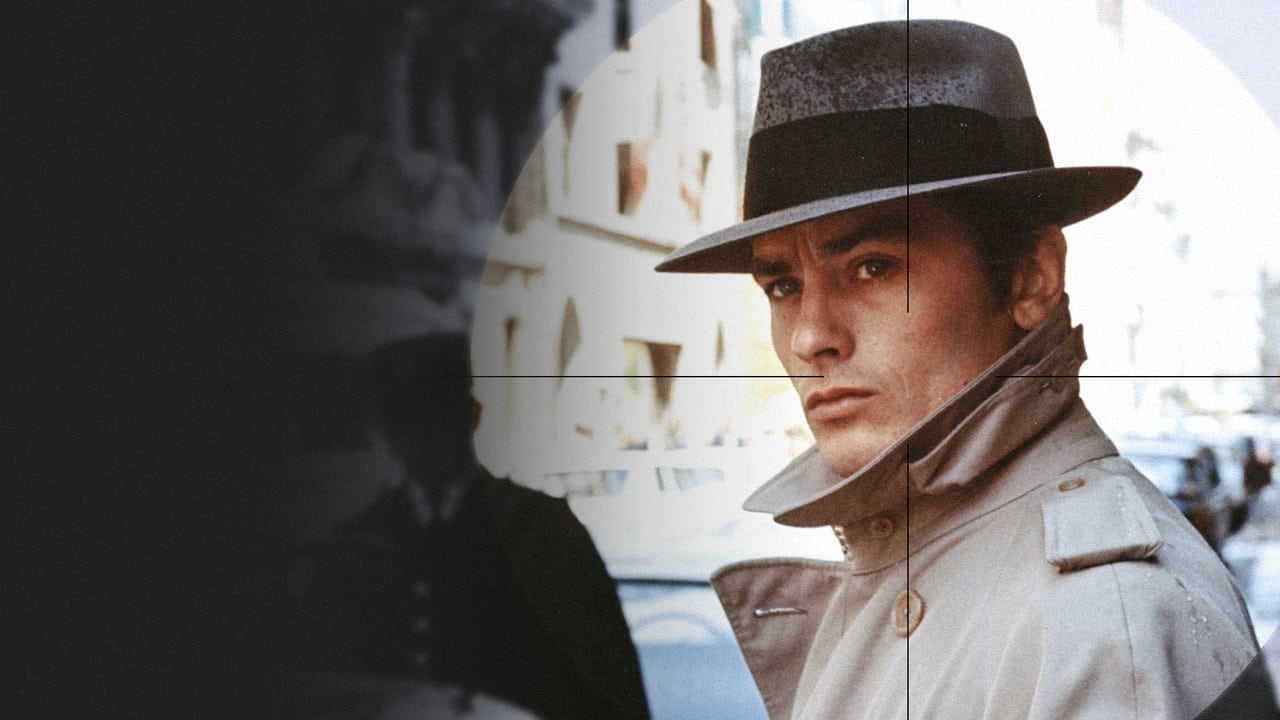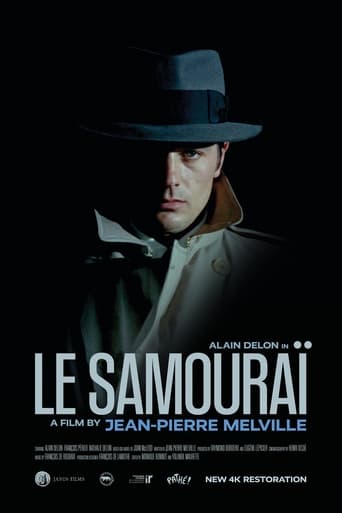

A terrific literary drama and character piece that shows how the process of creating art can be seen differently by those doing it and those looking at it from the outside.
... View MoreThis movie tries so hard to be funny, yet it falls flat every time. Just another example of recycled ideas repackaged with women in an attempt to appeal to a certain audience.
... View MoreThe storyline feels a little thin and moth-eaten in parts but this sequel is plenty of fun.
... View MoreThere is definitely an excellent idea hidden in the background of the film. Unfortunately, it's difficult to find it.
... View MoreEuropean films are known for the French New Wave style of filmmaking where they break the rules, especially in the editing room. The jump cuts originated from them, they cut their films without following the rules set upon by the Hollywood filmmakers which is suppose to be like this - establishing shot to know the location then medium to go closer to the characters, and then close-up for the dialogues. I have seen many old French films who disregards these techniques, but I was surprised to see this in Le Samourai a crime film starring Alain Delon about a professional hit man named Jeff Costello. Viewing this in the 21st century days of filmmaking I have to say it is beyond its time. It doesn't only have that Hollywood film-noir style, but it has the contemporary indie filmmaking of today which is slow-burn and edgy.Le Samourai is about Jeff Costello a hit man for hire who is tasked to kill an owner of a nightclub for the price of 2 million, but everything goes wrong when the nightclub's pianist played by Cathy Rosier sees him after the crime. The investigation happens after and Jeff Costello's alibi is strongly believed by the police because of the convincing statements of his lover who is also his accomplice, but the head of the investigation is not impressed, and after Costello's release the police still plots some investigations. The pianist who is the only witness of the crime denies the accusation that Jeff Costello is the murderer, and this leads to Jeff Costello wanting to know more about the pianist if she is hired to protect him or she has hidden affection to him. And then everything becomes a cat and mouse game.The mise-en-scene of the film is gloomy and dark it evokes the soulless act of killing. Jeff Costello's costume has a distinct trademark and character into it. He wears a fedora hat and brown trench coat, but inside of that he's wearing a dark suit which depicts who he is inside an empty and obscure person. Almost all of the character in the film is dressed in gray and dark tone which uplifts the edginess of the film. The cinematography isn't that impressive compared to some Hitchcock films which is also released in those decades. It losses it's suspense because the cinematography is not giving us hints or clues, but it releases actions abruptly. In terms of acting everyone is greatly directed especially the protagonist played by Alain Delon, he shows a nuance and silent approach to the character which reminds me of Ryan Gosling's acting in Drive or maybe that's Gosling's spirit animal that time. Cathy Rosier is elegant and mesmerizing with her role as a pianist she manages to attract my eyes every time she comes in the scene and her skin tone makes her more unique, and her last scene in the film is memorable.The structure of the story is very well-thought of by opening it slowly in a room apartment without nothing happening is an amusing approach making us viewers think what will be the journey of this story before it starts and it turns out to be unpredictable, and on the revelation scenes everyone will be on the edge of their seats. The denouement part of the film in the nightclub is a memorable scene and I think I will remember forever.Le Samourai is a thrilling experience, but it lacks big and explosive moments. I feel like the film is concentrating on the nuances of the characters rather than action scenes and I think that's not bad at all. I'm just waiting for snappier moments in the film that will make me jump off my chair.
... View MoreThis here is a resounding example that style and cinematography alone, even in the most classic and classy setting, won't ever make up for a film's plot and development shortcomings.Alain Delon is the samurai, and the little bird in his cage he's got in his lonely sleazy apartment continually letting out a monotonous shriek is an echoing mirror of his own solitude and separation from the regular life. He's dressed in a classic trench-coat and hat, and wears that classic film-noir mug on his face the whole film: impassible, unchanging and emotionless. The film also does a good job at playing into the more technical details of the action: the detective work and the strategies and intricacies employed by the many various parties involved to get what they want.Stylistically the film has a somewhat romantic feel to it, with a surprisingly novel and modern soundtrack for that time: superbly composed mixing modern organ tones with an older and grander baroque style; while visually the film is very grim, and intentionally very silent: the entire opening chunk is deliberately scriptless for a good portion, as to set a terribly sober film-noir atmosphere. The film leaves a visual impression of monochromatic vistas, strongly grey-ish and a discreet pale.The dialog is very good as well and properly conducted in key-scenes requiring a strong onscreen presence from its actors: Delon, Périer, Delon's wife...all do well and put in a very believable shift. It should also be noted there's a lot of implied, unsaid language at work: long eye contact between characters, lengthy wordless scenes showing a character on his own...all of which convey meaning, that bit more subtly.The problem though is it's a film that works for about an hour and fifteen, but then struggles to gather enough momentum to keep the enthusiasm going. We're sold what the story is about and what the film is in its essence well before the end, so why go on that much longer when all the goods have been exposed ? It seems to lag and drag its plot to the very last scene, which really does seem far from reach. They surely could've helped it with the pacing past that hour mark, and they certainly could've added more elements to strengthen the plot (another character ? another subplot ? less linear predictable development...) and give the viewer incentive for his full attention. Considering its legendary/cult status, it's certainly overrated - for despite its obvious qualities, it bears obvious faults that aren't negligible as a whole. It's good, but certainly not anywhere near transcendent, and ultimately it's too long and hollow for its own good: the plot is just too bare and simple - stretches out too long.6/10.
... View MoreIf you read the extreme ends of the IMDb reviews of Le Samouraï, you can likely guess whether you are going to like it or not. The film is extremely understated, slow moving and, at times, almost surreal in its minimalism, so don't expect an action film or even a slow but elaborate 'analytical' game of cat and mouse between a brilliant cop and an equally brilliant criminal. Similar to 2010's 'The American' (a film with a similar review polarity), Le Samouraï, is about the killer, not the killing, and the 'plot' is secondary, simplistic and not (IMHO) particularly satisfying. Delon's character, despite being an established professional hit-man, walks in to a crowded bar in full view of staff and patrons, shoots a man in an office with a non-suppressed revolver, gets picked up in a dragnet but then gets off the hook because the key witness lies to the police. He then spends much the rest of the movie being pursued around Paris but never makes any attempt to alter his appearance (or even change his clothes). Overall, I liked Le Samouraï as a stylistic Gallic ode to American gangster movies, but acknowledge that it is not a movie that seems to work at a lot of levels – deep: yes; superficially: disappointing. Too bad Melville and Delon never collaborated on a remake of the Maltese Falcon or The Big Sleep or some other tightly-plotted potboiler – the combination of Euro-style and Yankee-story might have been outstanding.
... View More"Nothing to say?" "Not with a gun on me." "Is that a principle?" "A habit."This film was directed brilliantly by Melville, who deals away with expository dialogue, action set-pieces and any semblance of a backstory. Not a second of this film is wasted with such trifles, the story is instead told through character actions and not through words (the first 10 minutes of the film are actually wordless).Our protagonist is Jef Costello (Alain Delon), a killer for hire, who has got wearing a fedora down to almost an exact science. He is hard as nails, cool as ice and suave as hell. The story follows him as he judiciously establishes himself an alibi, kills a club owner, is then taken in by the police, slips through a lineup, gets betrayed by his employers and is then stalked through a dreary Paris by the police and his employers alike, all the while realizing his own plan to take revenge.Melville's Paris always looks like it's either about to rain or it just did (when it's not actually raining). Both interiors and exteriors are perpetually drenched in grays and blues. Melville drains the entire film of color much in the same way that he drains his characters of words, that way both Paris and Jef feel cold, solitary and distant.Le Samourai is expertly crafted, effortlessly stylish and, I think, definitely worth seeing.
... View More